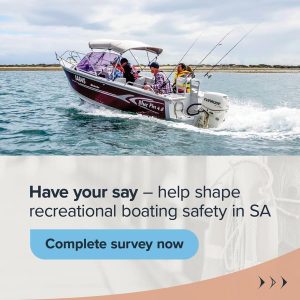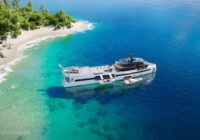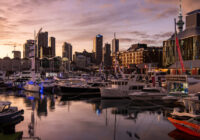South Australian boaties have the chance to win a lifejacket each week by having their say on how our waters can be made safer.
Consultation is now open to help finalise the development of the first ever South Australian Recreational Boating Safety Strategy.
The ‘South Australian Recreational Boating Safety Strategy Priority Areas’ paper, informed by feedback from the community and interested organisations, has been released. The paper details five priority areas and measures to improve recreational boating safety across our coastline and waterways.
Your feedback on these priority areas will help to develop the state’s first Recreational Boating Safety Strategy to be released by the end of 2024.
Have your say by completing the survey by 5pm on Friday, 6 September 2024. Anyone who completes the online survey will go into the draw to win a lifejacket. One lifejacket will be given away each week. Terms and conditions apply.
Read the Priority Areas paper and complete the survey here.
Silent killer warning for winter boaters
Sunny winter weekends can be a perfect opportunity for boaters to take advantage of quiet traffic conditions and calm waters. It is also a timely reminder about the dangers of what’s known as a “silent killer”.
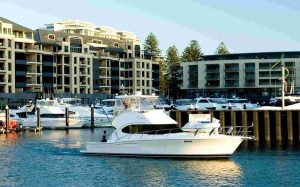
When engines are running, carbon monoxide can accumulate causing a hazard to those onboard, especially if it is partially enclosed by a canopy. Carbon monoxide is a colourless and odourless gas, and a high concentration can be fatal within minutes.
Stay safe by:
- making sure your boat’s seating areas are well ventilated, especially if heating or cooking appliances are being used
- being aware of the likely signs of carbon monoxide poisoning, which can include headaches, dizziness, nausea and loss of consciousness.
Scheduling regular engine and exhaust system maintenance by a qualified technician is recommended. A carbon monoxide gas alarm can also be fitted cheaply to any boat. These can be purchased from your local hardware store.
Keep your distance from whales
Whale season is in full swing. It might be tempting to get a closer look, but remember, approaching whales too closely is illegal and dangerous.
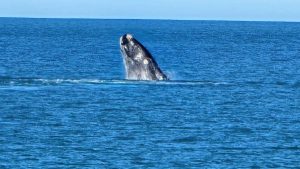
To stay safe:
- keep your boat well away from whales
- avoid traveling on a collision course or making sudden speed or direction changes.
For more rules on boating around whales, visit the National Parks and Wildlife Service website.
Enjoy the season responsibly and help protect these amazing creatures!
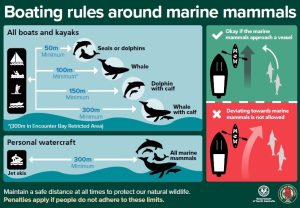
Kayaking and canoeing
Five reservoirs in South Australia are open to kayaking and canoeing: Happy Valley, South Para, Warren, Myponga and Bundaleer. All sites have dedicated launch areas.
These reservoirs provide rest and recreational opportunities allowing you to discover hidden bays and shorelines from the water.
If you are heading out, don’t forget to wear your lifejacket.
You must wear a lifejacket if kayaking or canoeing. Head to the which lifejacket do you need checking tool for lifejacket requirements.
For those wanting to fish while on the reservoir, please apply for a fishing permit via SA Water.
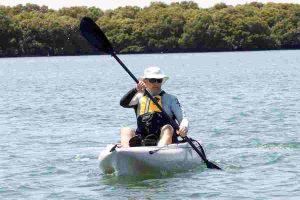
World Drowning Prevention Day – July 25
Did you know that drowning claims the lives of more than 200,000 people annually across the globe? These deaths are preventable.
Marine Safety SA is part of an ongoing collaboration to implement The Riverland Water Safety Strategy, with the River Murray identified as the top inland waterway blackspot for drowning in Australia.
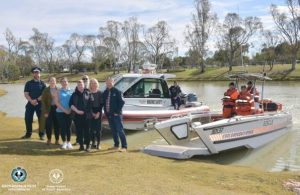
On World Drowning Prevention Day, which was held on Thursday 25 July, Marine Safety SA visited Berri with South Australia Police, Royal Life Saving Society Australia and other Riverland stakeholders to promote water safety.
Marine Safety SA is committed to education and compliance operations throughout the state, with the primary focus being safety.
Anyone can drown, but no one should! You can take simple steps each time you head out on the water to prevent drowning:
Report accidents or incidents on the water
Did you know, you are legally required to report any accidents or incidents involving your vessel that result in the loss of life, personal injury, or property damage?
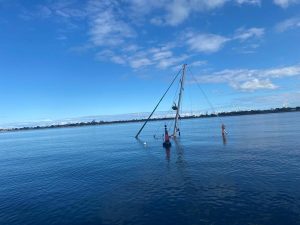
If you are a recreational boater, you can lodge a boating accident or incident form online. Reports need to be lodged within 48 hours of an incident. If you are a commercial vessel you need to lodge a form with the Australian Maritime Safety Authority (AMSA) within 72 hours.
A report is not required where personal injury is minor and does not require medical attention or where property damage is less than $1000.
Marine Safety SA encourage you to report any marine safety concern such as inappropriate behaviour on the water and hazards.
Giving way – test your knowledge
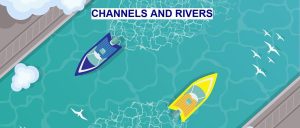
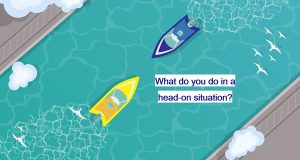
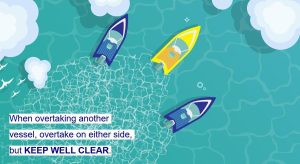
Rules on giving way are vital to navigating safely on all waters. International boating rules must be followed when operating on South Australian waters.
If you are required to give way to another vessel, take early and positive action so that your intentions are clear.
If another vessel is required to give way to you, maintain your speed and course unless it is obvious that a collision may occur. In this case stop, slow down or turn away.
How did you go on the three give way scenarios above?
For rivers and channels:
- All vessels, including sail vessels, must always be navigated on the starboard (right) side of the river or channel in the direction of travel.
Power-driven vessels meeting head-on:
- Each vessel must alter course to the starboard (right) side of the river or channel in the direction of travel.
Vessels overtaking:
- An overtaking vessel, including a sailing vessel, may pass on either side if safe but must keep well clear of the vessel being overtaken.
It is always good to refresh your knowledge of the boating rules before heading out on the water. You can test your knowledge of these rules by completing the practice test online.
Servicing your inflatable lifejacket
Lifejackets are easy to use and don’t hinder you from having a good time.
A regular service of your lifejacket makes sure the bladder, inflation mechanism and CO2 cylinder are in good working order.
If you cannot remember when your lifejacket was last serviced, Marine Safety SA recommend you get it serviced straight away.
Handy tips when servicing your inflatable lifejacket are:
- Blow air into the lifejacket
- Check for cuts, tears and frayed edges
- Leave inflated overnight to check for small holes
When servicing the cylinder that inflates the lifejacket automatically, follow the manufacturer’s instructions for servicing (generally every 12 months) and ensure that you mark your service dates on the placard inside the jacket.
For more information of how to self-service your inflatable jacket, head to Marine Safety SA.





